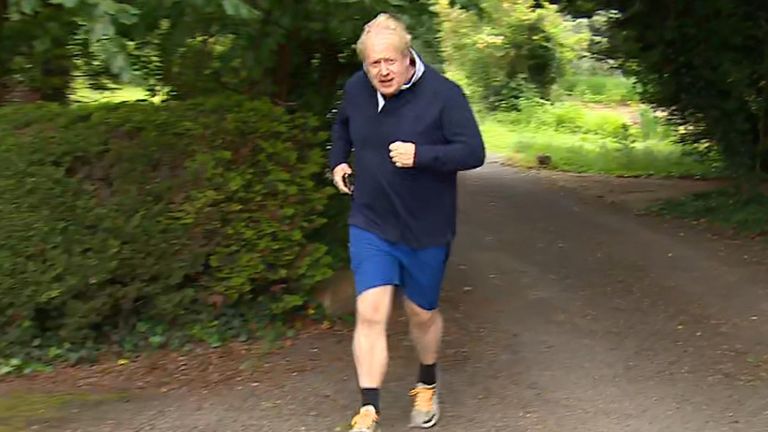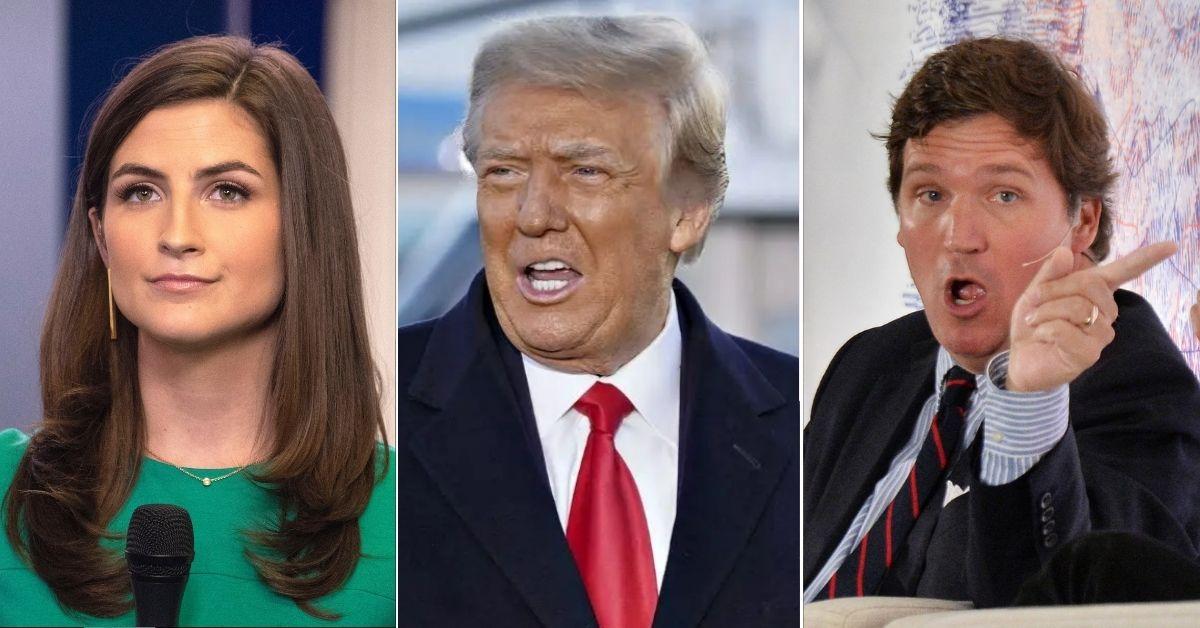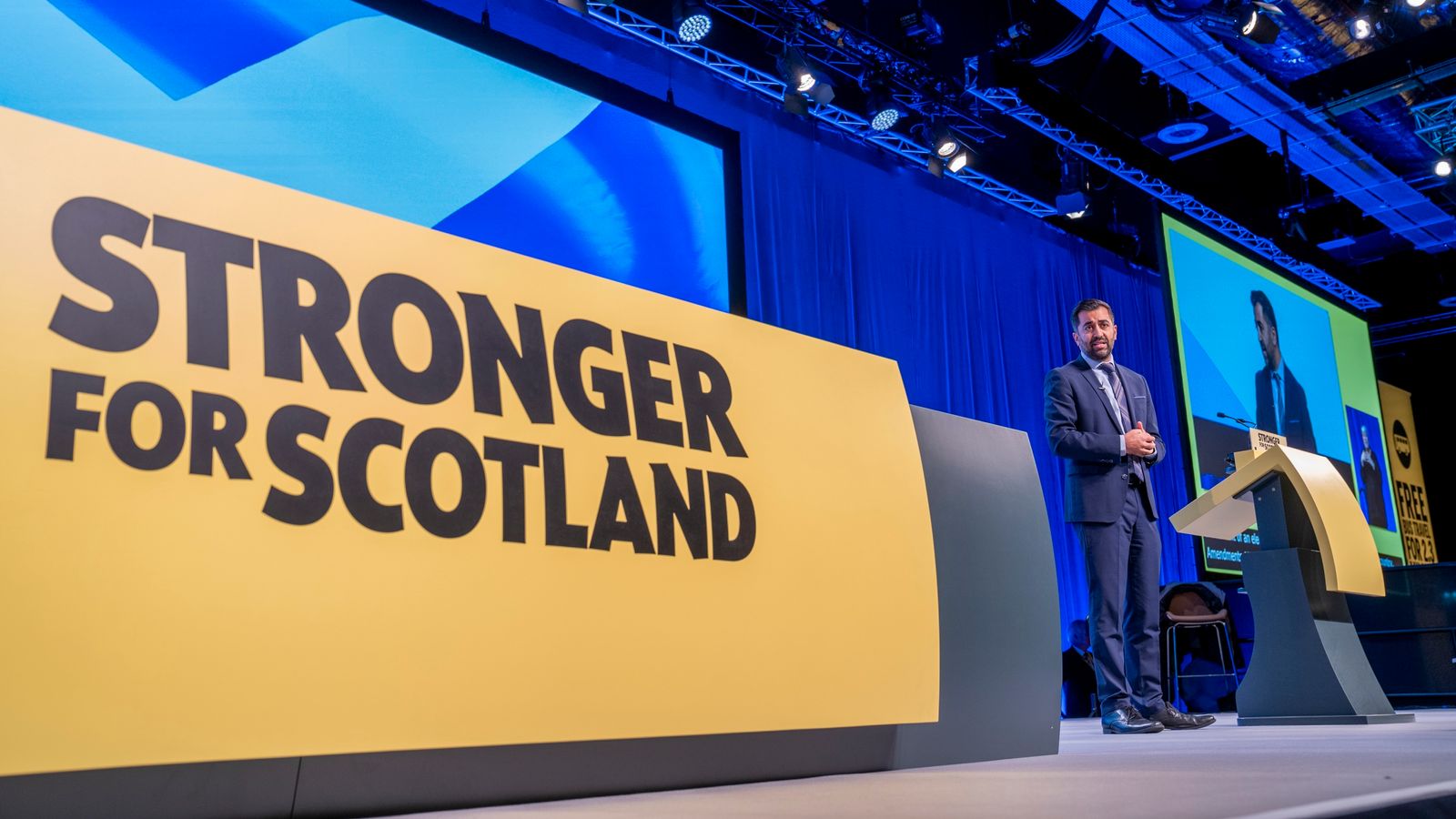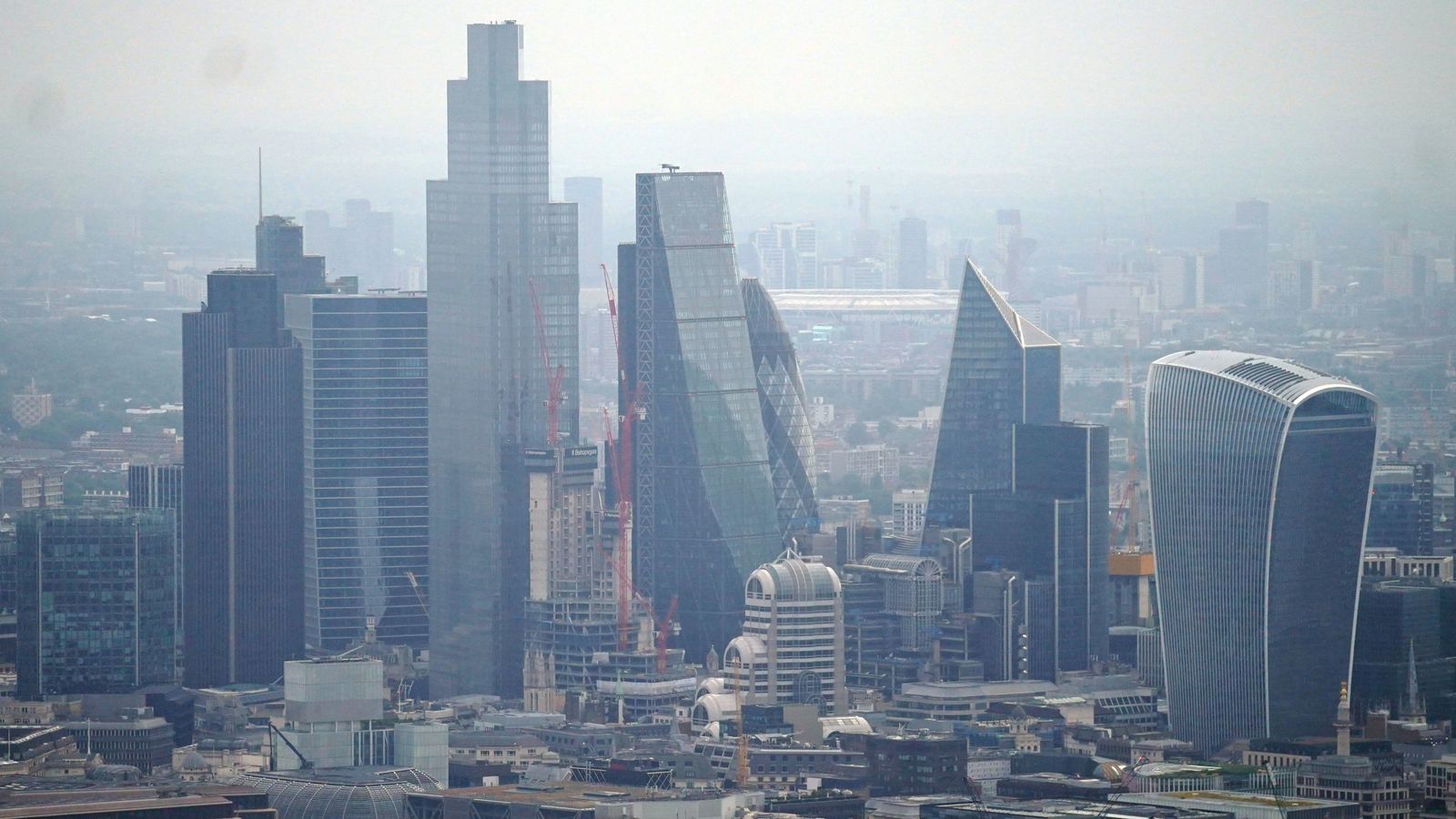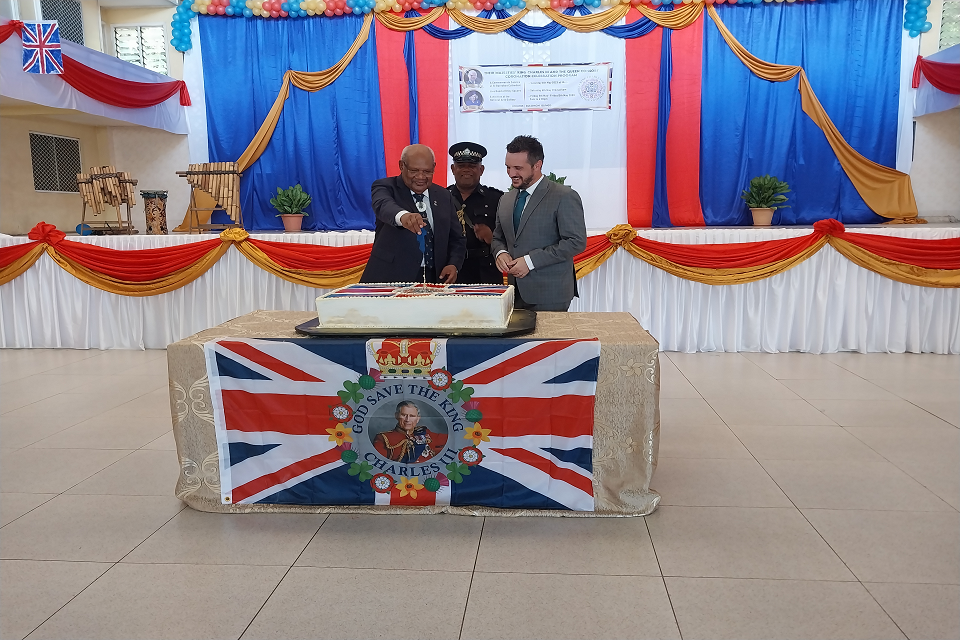COVID inquiry chair insists it is for her to decide what material is ‘relevant’ amid row over Johnson WhatsApps | Politics News
The chair of the COVID inquiry says it is up to her to decide what evidence is “relevant or potentially relevant” amid a legal row with the government over Boris Johnson’s WhatsApp messages.
Baroness Hallett refused to withdraw her order for the government to hand over unredacted material for her investigation as she formally opened the COVID inquiry on Tuesday.
It comes just days after the government launched a judicial review over her order to the Cabinet Office that it hand over Mr Johnson’s unredacted WhatsApp messages, diary entries and other documents.
The former prime minister has already sent “all unredacted WhatsApps” directly to the inquiry.
Acknowledging the legal battle, Baroness Hallett said: “As has been widely reported in the media, an issue has arisen between the inquiry and the Cabinet Office as to who decides what is relevant or potentially relevant.
“I issued a notice under Section 21 of the Inquiries Act 2005 making it clear that, in my view, it is for the inquiry chair to decide what is relevant or potentially relevant.
“The Cabinet Office disagrees, claiming they are not obliged to disclose what they consider to be unambiguously irrelevant material. They invited me to withdraw the Section 21 notice. I declined.
“They are now challenging my decision to decline to withdraw the notice in the High Court by way of judicial review.
“With litigation pending and as the decision-maker, I can make no further comment.”
In its reasoning for launching the judicial review, the government said it had done so with “regret” but that “important issues of principle” were at stake around privacy.
It also questioned whether Baroness Hallett has “the power to compel production of documents and messages which are unambiguously irrelevant to the inquiry’s work” and argued that requesting such material “represents an unwarranted intrusion into other aspects of the work of government”.
But Mr Johnson decided to bypass the Cabinet Office last week by sending “all unredacted WhatsApps” directly to the COVID inquiry, saying he was “perfectly content” for the material to be inspected.
The former prime minister said he would “like to do the same” with texts that are on an old mobile phone he stopped using due to security concerns in May 2021 – more than a year after the pandemic began.
He said he had asked the government for its help to turn on the device securely to hand over the material.
Hugo Keith KC, a counsel for the inquiry, told Baroness Hallett that Mr Johnson;s unredacted WhatsApp messages and notebooks were going to be compared with redacted copies provided by the Cabinet Office and that the inspection would begin this week.
“The inspection will allow your team to make its own assessment as to the redactions applied by the Cabinet Office and to satisfy ourselves and ultimately you of their appropriateness or otherwise,” he said.
Mr Keith said the inquiry had asked the Cabinet Office to return Mr Johnson’s notebooks to him by June 12 to start a similar inspection process so it can “compare them to the redacted copies already provided by the Cabinet Office”.
Mr Johnson’s locked former phone had also been handed to the government with the hope of obtaining his messages before May 2021, Mr Keith said.
“Neither Mr Johnson nor the inquiry has the technical expertise to ensure the contents of the phone can be downloaded safely and properly, particularly bearing in mind the overarching need to ensure no damage is done to national security.
“We have therefore agreed that this phone should be provided to the appropriate personnel in government for its contents to be downloaded.
“We have asked the Cabinet Office, in liaison with Mr Johnson and those government personnel, to obtain the phone without delay, to confirm in writing the process by which it will be examined and to give confirmation that it, like the diaries and the notebooks and the WhatsApps, will be accessed fully.
“That is to say, there will be no redactions made to the contents, other than in relation to national security, before we may view it.”
The government yesterday outlined its reasons for seeking a judicial review with a statement in parliament.
Paymaster general Jeremy Quin sought to reassure MPs that the government’s legal action did not “touch on the government’s confidence in the inquiry” but was instead about a “narrow and technical point of law”.
He also confirmed that the first court hearing of the judicial review would take place “on or shortly after June 30”.
